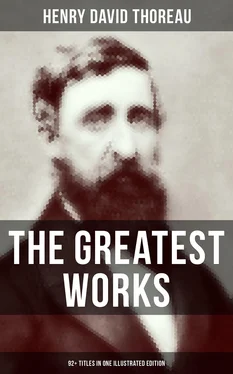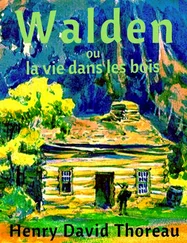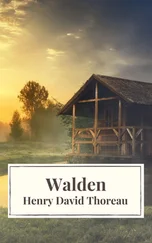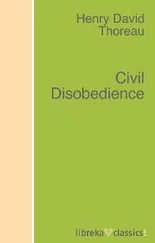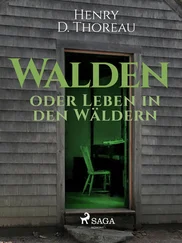Nor will we disturb the antiquity of this Scripture; "From fire, from air, and from the sun," it was "milked out." One might as well investigate the chronology of light and heat. Let the sun shine. Menu understood this matter best, when he said, "Those best know the divisions of days and nights who understand that the day of Brahma, which endures to the end of a thousand such ages, (infinite ages, nevertheless, according to mortal reckoning,) gives rise to virtuous exertions; and that his night endures as long as his day." Indeed, the Mussulman and Tartar dynasties are beyond all dating. Methinks I have lived under them myself. In every man's brain is the Sanscrit. The Vedas and their Angas are not so ancient as serene contemplation. Why will we be imposed on by antiquity? Is the babe young? When I behold it, it seems more venerable than the oldest man; it is more ancient than Nestor or the Sibyls, and bears the wrinkles of father Saturn himself. And do we live but in the present? How broad a line is that? I sit now on a stump whose rings number centuries of growth. If I look around I see that the soil is composed of the remains of just such stumps, ancestors to this. The earth is covered with mould. I thrust this stick many aeons deep into its surface, and with my heel make a deeper furrow than the elements have ploughed here for a thousand years. If I listen, I hear the peep of frogs which is older than the slime of Egypt, and the distant drumming of a partridge on a log, as if it were the pulse-beat of the summer air. I raise my fairest and freshest flowers in the old mould. Why, what we would fain call new is not skin deep; the earth is not yet stained by it. It is not the fertile ground which we walk on, but the leaves which flutter over our heads. The newest is but the oldest made visible to our senses. When we dig up the soil from a thousand feet below the surface, we call it new, and the plants which spring from it; and when our vision pierces deeper into space, and detects a remoter star, we call that new also. The place where we sit is called Hudson,—once it was Nottingham,—once —
We should read history as little critically as we consider the landscape, and be more interested by the atmospheric tints and various lights and shades which the intervening spaces create, than by its groundwork and composition. It is the morning now turned evening and seen in the west,—the same sun, but a new light and atmosphere. Its beauty is like the sunset; not a fresco painting on a wall, flat and bounded, but atmospheric and roving or free. In reality, history fluctuates as the face of the landscape from morning to evening. What is of moment is its hue and color. Time hides no treasures; we want not its then , but its now . We do not complain that the mountains in the horizon are blue and indistinct; they are the more like the heavens.
Of what moment are facts that can be lost,—which need to be commemorated? The monument of death will outlast the memory of the dead. The pyramids do not tell the tale which was confided to them; the living fact commemorates itself. Why look in the dark for light? Strictly speaking, the historical societies have not recovered one fact from oblivion, but are themselves, instead of the fact, that is lost. The researcher is more memorable than the researched. The crowd stood admiring the mist and the dim outlines of the trees seen through it, when one of their number advanced to explore the phenomenon, and with fresh admiration all eyes were turned on his dimly retreating figure. It is astonishing with how little co-operation of the societies the past is remembered. Its story has indeed had another muse than has been assigned it. There is a good instance of the manner in which all history began, in Alwákidis' Arabian Chronicle: "I was informed by Ahmed Almatin Aljorhami , who had it from Reph â a Ebn Kais Al á miri , who had it from Saiph Ebn Fabalah Alch â tquarmi , who had it from Thabet Ebn Alkamah , who said he was present at the action." These fathers of history were not anxious to preserve, but to learn the fact; and hence it was not forgotten. Critical acumen is exerted in vain to uncover the past; the past cannot be presented ; we cannot know what we are not. But one veil hangs over past, present, and future, and it is the province of the historian to find out, not what was, but what is. Where a battle has been fought, you will find nothing but the bones of men and beasts; where a battle is being fought, there are hearts beating. We will sit on a mound and muse, and not try to make these skeletons stand on their legs again. Does Nature remember, think you, that they were men, or not rather that they are bones?
Ancient history has an air of antiquity. It should be more modern. It is written as if the spectator should be thinking of the backside of the picture on the wall, or as if the author expected that the dead would be his readers, and wished to detail to them their own experience. Men seem anxious to accomplish an orderly retreat through the centuries, earnestly rebuilding the works behind, as they are battered down by the encroachments of time; but while they loiter, they and their works both fall a prey to the arch enemy. History has neither the venerableness of antiquity, nor the freshness of the modern. It does as if it would go to the beginning of things, which natural history might with reason assume to do; but consider the Universal History, and then tell us,—when did burdock and plantain sprout first? It has been so written for the most part, that the times it describes are with remarkable propriety called dark ages . They are dark, as one has observed, because we are so in the dark about them. The sun rarely shines in history, what with the dust and confusion; and when we meet with any cheering fact which implies the presence of this luminary, we excerpt and modernize it. As when we read in the history of the Saxons that Edwin of Northumbria "caused stakes to be fixed in the highways where he had seen a clear spring," and "brazen dishes were chained to them to refresh the weary sojourner, whose fatigues Edwin had himself experienced." This is worth all Arthur's twelve battles.
"Through the shadow of the world we sweep into the younger day:
Better fifty years of Europe than a cycle of Cathay."
Than fifty years of Europe better one New England ray!
Biography, too, is liable to the same objection; it should be autobiography. Let us not, as the Germans advise, endeavor to go abroad and vex our bowels that we may be somebody else to explain him. If I am not I, who will be?
But it is fit that the Past should be dark; though the darkness is not so much a quality of the past as of tradition. It is not a distance of time, but a distance of relation, which makes thus dusky its memorials. What is near to the heart of this generation is fair and bright still. Greece lies outspread fair and sunshiny in floods of light, for there is the sun and daylight in her literature and art. Homer does not allow us to forget that the sun shone,—nor Phidias, nor the Parthenon. Yet no era has been wholly dark, nor will we too hastily submit to the historian, and congratulate ourselves on a blaze of light. If we could pierce the obscurity of those remote years, we should find it light enough; only there is not our day. Some creatures are made to see in the dark. There has always been the same amount of light in the world. The new and missing stars, the comets and eclipses, do not affect the general illumination, for only our glasses appreciate them. The eyes of the oldest fossil remains, they tell us, indicate that the same laws of light prevailed then as now. Always the laws of light are the same, but the modes and degrees of seeing vary. The gods are partial to no era, but steadily shines their light in the heavens, while the eye of the beholder is turned to stone. There was but the sun and the eye from the first. The ages have not added a new ray to the one, nor altered a fibre of the other.
Читать дальше
